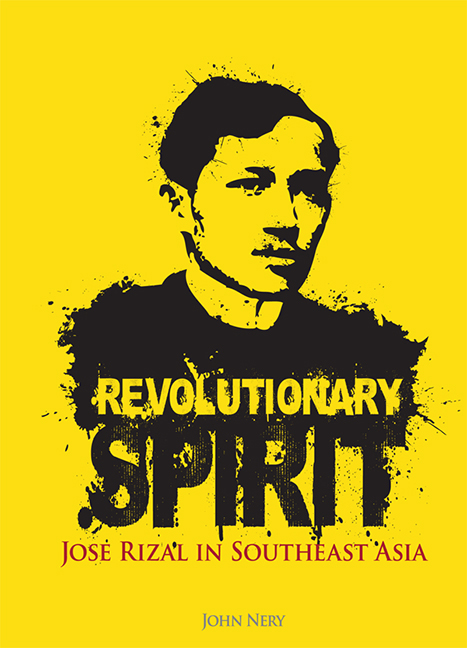Book contents
- Frontmatter
- Dedication
- Epigraph
- Contents
- Foreword
- Message
- Preface
- Acknowledgements
- INTRODUCTION The Uses of Error A Rizal Chronology
- 1 TURNING POINTS
- 2 “THE VERY SOUL OF THIS REBELLION”
- 3 DOCTOR RIZAL
- 4 “HALFBLOED”
- 5 “NO MARX OR LENIN”
- 6 UNDER THE SOUTHERN SUN
- 7 THE HOPE OF MILLIONS IN ASIA
- 8 “HIS NAME IS SWEET IN OUR MEMORY”
- 9 THE MYTH BUSTERS
- 10 “A GREAT HISTORICAL EXPERIMENT”
- Epilogue
- Appendices
- References
- Index
- Frontmatter
- Dedication
- Epigraph
- Contents
- Foreword
- Message
- Preface
- Acknowledgements
- INTRODUCTION The Uses of Error A Rizal Chronology
- 1 TURNING POINTS
- 2 “THE VERY SOUL OF THIS REBELLION”
- 3 DOCTOR RIZAL
- 4 “HALFBLOED”
- 5 “NO MARX OR LENIN”
- 6 UNDER THE SOUTHERN SUN
- 7 THE HOPE OF MILLIONS IN ASIA
- 8 “HIS NAME IS SWEET IN OUR MEMORY”
- 9 THE MYTH BUSTERS
- 10 “A GREAT HISTORICAL EXPERIMENT”
- Epilogue
- Appendices
- References
- Index
Summary
He was, self-evidently, a man of projects. From his letters and diaries, and from the accounts of those who knew him best, we get the impression that Rizal was incapable of standing still, of doing nothing. He always had something going on.
His closest friends, like the tireless letter-writer Evaristo Aguirre, understood. “Do not be surprised that I have delayed answering your esteemed letter of 10 November,” Aguirre writes at the end of January, in 1887, by way of excusing his “prolonged silence” in corresponding with Rizal. “It was because, not long after having received it, I was told that you had gone to Italy, through a notice from Ceferino de Leon, on account of your chest ailment; it was only on the night of 31 December, when we gathered, that I found out that your trip was not certain, but simply an idea or a project [un proyecto] of yours, as yet undecided.”
A Spaniard born in Kawit (Cauit), Cavite, just south of Manila, and in the 1880s a student in Madrid, Aguirre considered himself a pure Filipino and shared Rizal's sense of patriotic obligation; if anything, his nationalism was a step ahead of Rizal's, and by the time La Solidaridad was launched in 1889 as the flagship of the Propaganda campaign to publicise the evils of Spanish colonial rule in the Philippines, he already recognized the futility of political agitation in Spain. Like Julio Llorente, another friend of Rizal's, he had been disillusioned by the intrigues and the insipidity of the short-lived España en Filipinas, the Soli's forerunner. The biographer Leon Ma. Guerrero professed some impatience with Aguirre's kilometric letters, but as John Schumacher SJ, the definitive chronicler of the Propaganda, noted less than a decade after The First Filipino appeared in print, Aguirre's letters were “a principal source for the events of this period” (Schumacher 1997: 59; the first edition of Schumacher's The Propaganda Movement came out in 1973).
Aguirre's letters help paint a portrait of Rizal as perpetually engaged in one undertaking after another.
- Type
- Chapter
- Information
- Revolutionary SpiritJose Rizal in Southeast Asia, pp. 46 - 68Publisher: ISEAS–Yusof Ishak InstitutePrint publication year: 2011

